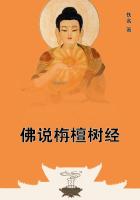It is vehemently maintained by some writers of the present day that Elizabeth persecuted neither Papists nor Puritans as such, and that the severe measures which she occasionally adopted were dictated, not by religious intolerance, but by political necessity. Even the excellent account of those times which Mr. Hallam has given has not altogether imposed silence on the authors of this fallacy. The title of the Queen, they say, was annulled by the Pope; her throne was given to another; her subjects were incited to rebellion; her life was menaced; every Catholic was bound in conscience to be a traitor; it was therefore against traitors, not against Catholics, that the penal laws were enacted.
In order that our readers may be fully competent to appreciate the merits of this defence, we will state, as concisely as possible, the substance of some of these laws.
As soon as Elizabeth ascended the throne, and before the least hostility to her government had been shown by the Catholic population, an act passed prohibiting the celebration of the rites of the Romish Church on pain of forfeiture for the first offence, of a year's imprisonment for the second, and of perpetual imprisonment for the third.
A law was next made in 1562, enacting, that all who had ever graduated at the Universities or received holy orders, all lawyers, and all magistrates, should take the oath of supremacy when tendered to them, on pain of forfeiture and imprisonment during the royal pleasure. After the lapse of three mouths, the oath might again be tendered to them; and if it were again refused, the recusant was guilty of high treason. A prospective law, however severe, framed to exclude Catholics from the liberal professions, would have been mercy itself compared with this odious act. It is a retrospective statute; it is a retrospective penal statute; it is a retrospective penal statute against a large class. We will not positively affirm that a law of this description must always, and under all circumstances, be unjustifiable. But the presumption against it is most violent; nor do we remember any crisis either in our own history, or in the history of any other country, which would have rendered such a provision necessary. In the present case, what circumstances called for extraordinary rigour? There might be disaffection among the Catholics. The prohibition of their worship would naturally produce it. But it is from their situation, not from their conduct, from the wrongs which they had suffered, not from those which they had committed, that the existence of discontent among them must be inferred. There were libels, no doubt, and prophecies, and rumours and suspicions, strange grounds for a law inflicting capital penalties, ex post facto, on a large body of men.
Eight years later, the bull of Pius deposing Elizabeth produced a third law. This law, to which alone, as we conceive, the defence now under our consideration can apply, provides that, if any Catholic shall convert a Protestant to the Romish Church, they shall both suffer death as for high treason.
We believe that we might safely content ourselves with stating the fact, and leaving it to the judgment of every plain Englishman. Recent controversies have, however, given so much importance to this subject, that we will offer a few remarks on it.
In the first place, the arguments which are urged in favour of Elizabeth apply with much greater force to the case of her sister Mary. The Catholics did not, at the time of Elizabeth's accession, rise in arms to seat a Pretender on her throne. But before Mary had given, or could give, provocation, the most distinguished Protestants attempted to set aside her rights in favour of the Lady Jane. That attempt, and the subsequent insurrection of Wyatt, furnished at least as good a plea for the burning of Protestants, as the conspiracies against Elizabeth furnish for the hanging and embowelling of Papists.
The fact is that both pleas are worthless alike. If such arguments are to pass current, it will be easy to prove that there was never such a thing as religious persecution since the creation. For there never was a religious persecution in which some odious crime was not, justly or unjustly, said to be obviously deducible from the doctrines of the persecuted party.
We might say, that the Caesars did not persecute the Christians; that they only punished men who were charged, rightly or wrongly, with burning Rome, and with committing the foulest abominations in secret assemblies; and that the refusal to throw frankincense on the altar of Jupiter was not the crime, but only evidence of the crime. We might say, that the massacre of St. Bartholomew was intended to extirpate, not a religious sect, but a political party. For, beyond all doubt, the proceedings of the Huguenots, from the conspiracy of Amboise to the battle of Moncontour, had given much more trouble to the French monarchy than the Catholics have ever given to the English monarchy since the Reformation; and that too with much less excuse.
The true distinction is perfectly obvious. To punish a man because he has committed a crime, or because he is believed, though unjustly, to have committed a crime, is not persecution.
To punish a man, because we infer from the nature of some doctrine which he holds, or from the conduct of other persons who hold the same doctrines with him, that he will commit a crime is persecution, and is, in every case, foolish and wicked.
When Elizabeth put Ballard and Babington to death, she was not persecuting. Nor should we have accused her government of persecution for passing any law, however severe, against overt acts of sedition. But to argue that, because a man is a Catholic, he must think it right to murder a heretical sovereign, and that because he thinks it right, he will attempt to do it, and then, to found on this conclusion a law for punishing him as if he had done it, is plain persecution.















